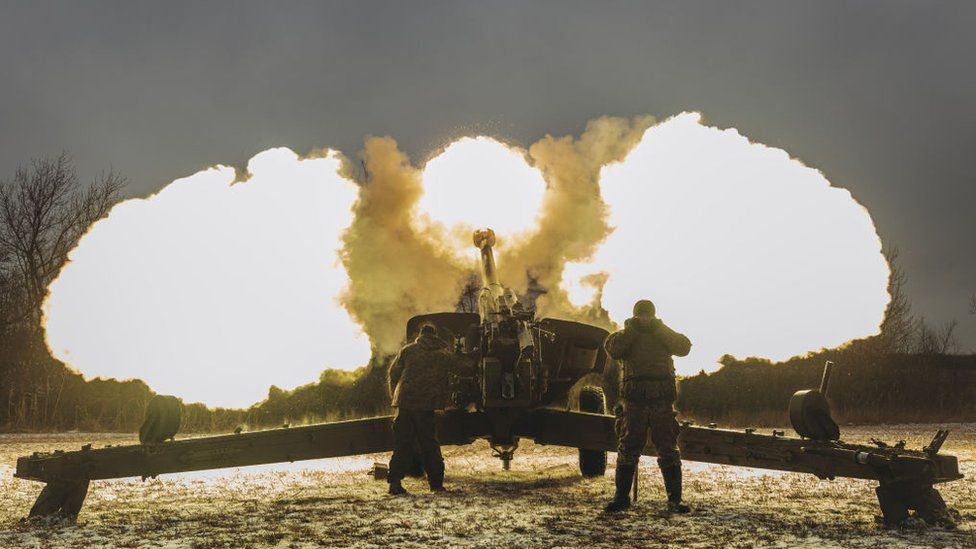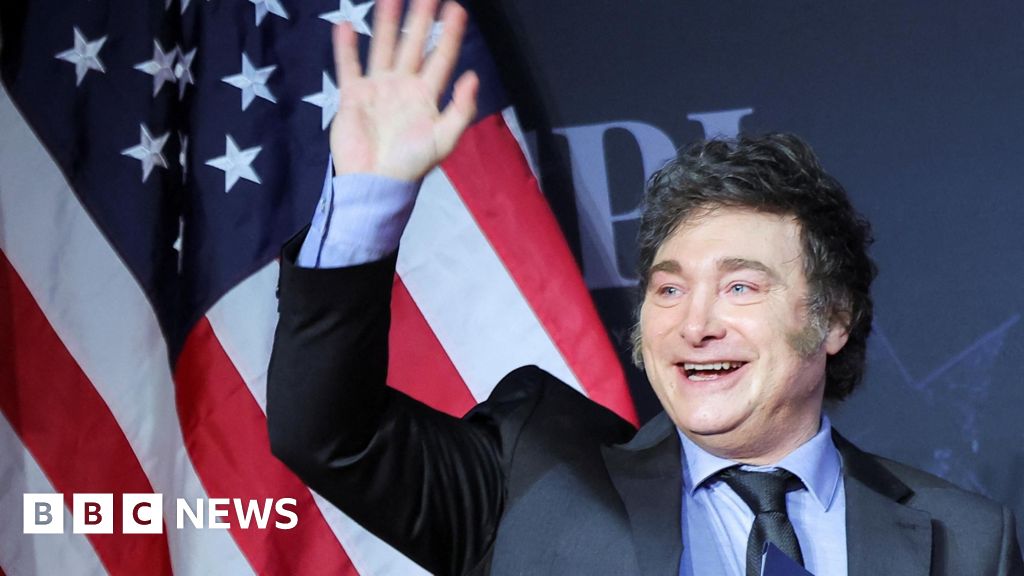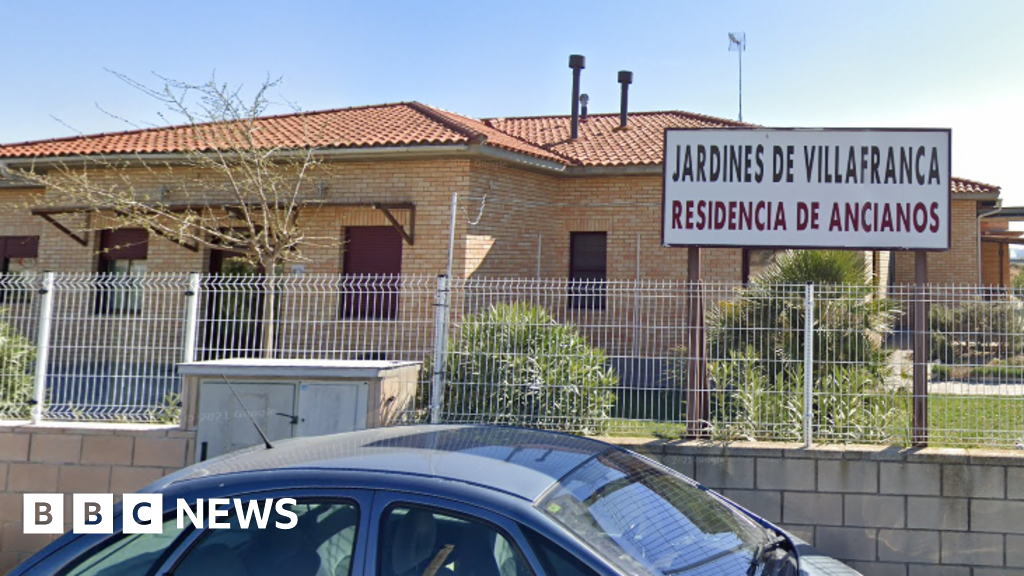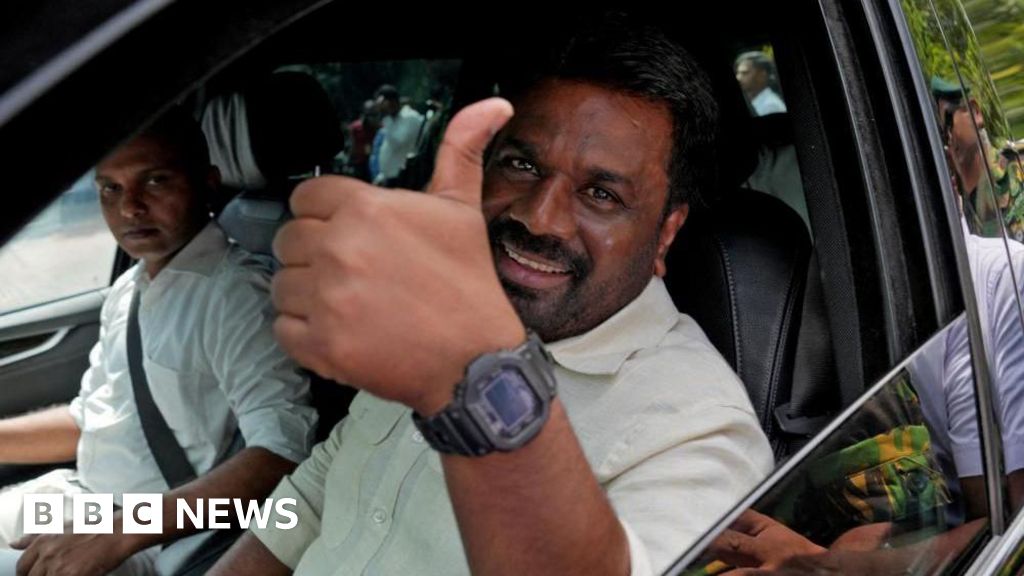ARTICLE AD BOX
 Image source, Getty Images
Image source, Getty Images
The US says additional military aid to Ukraine worth $2.2bn (£1.83bn) will include long-range missiles capable of doubling its attack range.
It brings the total amount of military aid given to Ukraine to more than $29.3bn (£24.31bn) since February 2022.
The package includes ground-launched small-diameter bombs (GLSDB) which can hit targets 150km (93 miles) away.
But officials refused to be drawn on speculation that the munitions could be used to attack parts of annexed Crimea.
"When it comes to Ukrainian plans on operations, clearly that is their decision," Pentagon spokesperson Brig Gen Pat Ryder told reporters.
"This gives them a longer-range capability, long-range fires capability, that will enable them, again, to conduct operations in defence of their country and take back their sovereign territory, Russian-occupied areas."
Russia illegally annexed the Crimean Peninsula in 2014 and considers it part of its territory. But it has come under sporadic fire from Ukrainian forces in recent months.
Western nations have repeatedly ruled out providing Ukraine with offensive weapons - such as fighter jets - which it could use to strike against Russia itself.
In a tweet, Ukrainian President Volodymyr Zelensky thanked the US and President Joe Biden for the additional aid.
"The more long-range our weapons are and the more mobile our troops are, the sooner Russia's brutal aggression will end," Mr Zelensky wrote. "Together with [the US] we stand against terror."
Image source, Getty Images
Image caption,President Zelensky has long urged the West to provide his forces with artillery capable of firing over greater distances.
Previously, Ukraine's longest range weapon was the Himars rocket system, which can hit targets at a range of up to 80km (50 miles). Kyiv used the system to devastating effect during its counter-offensive in the south and east earlier this year.
The GLSDB also gives Ukraine forces an ability to strike anywhere in the Russian-occupied Donbas, Zaporizhzhia and Kherson regions. It also allows Ukraine to threaten Russian supply lines in the east.
Manufactured by Boeing and Saab, GLSDB is a gliding rocket with a small bomb attached, capable of striking a target within one metre of its position.
And it can be fired from a variety of weapons systems, including the Himars and M270 MLRS systems already in use in Ukraine. However, both the Pentagon and Boeing refused to comment on delivery dates for the system, with some reports suggesting that it could take up to nine months before it reaches Ukraine.
The new package - which will also include additional Himars missiles and 250 Javelin anti-armour systems - comes amid mounting concerns that Western nations have been too slow to provide fresh military aid to Ukraine.
"GLSDB should have been approved last fall, US House of Representatives Armed Services Chair Mike Rogers said in a tweet. "Every day it's not approved is a day it's delayed getting it into the hands of a Ukrainian ready to kill a Russian."
In recent days, reports have emerged that a Russian offensive in the eastern Donbas region has been gaining momentum, with pro-Kremlin bloggers suggesting that the town of Bakhmut, long a focal point of Russian attacks, has been surrounded from three-sides.
But President Zelensky said his forces were entrenched around the town and would not surrender it to Russian assaults.
"We consider Backhmut to be our fortress," the Ukrainian leader said. "If weapon [deliveries] are accelerated - namely long-range weapons - we will not only not withdraw from Bakhmut, we will begin to de-occupy Donbas, which has been occupied since 2014."
Mr Zelensky said earlier that a long-rumoured Russian spring offensive in the region had already begun and his Defence Minister Oleksii Reznikov said earlier this week that Moscow had mobilised some 500,000 troops for the renewed assault.
Meanwhile, the Ukrainian leader has been holding new EU accession talks with the bloc's leaders, Commission President Ursula von der Leyen and Council President Charles Michel, in Kyiv.
Speaking after the summit, Mr Zelensky said the leaders had reached an "understanding that it is possible to start negotiations on Ukraine's membership in the European Union this year".
But Ms von der Leyen said there were "no rigid timelines" in place and emphasised that Ukraine had political goals it must meet before joining the block.
The EU has repeatedly underlined the need for Ukraine to step up its fight against endemic corruption, reform its judiciary by weeding out political interference and strengthen its economy.
Elsewhere, Germany has announced plans to send Leopard 1 tanks to Ukraine. The earlier model of the Leopard 2s - which Berlin has already promised to provide - can be delivered to Kyiv sooner than the advanced model.

 1 year ago
17
1 year ago
17








 English (US)
English (US)